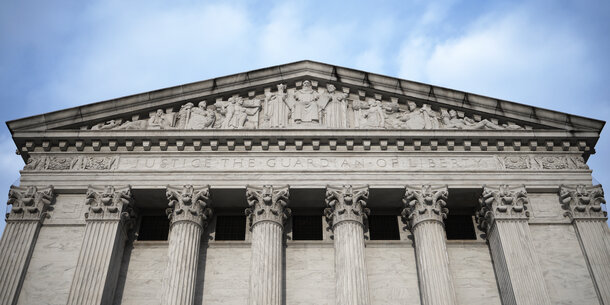One Year After George Floyd’s Murder
Change must reach deeper than criminal justice reform.

One year ago today, Minneapolis police officer Derek Chauvin murdered George Floyd. The movement for racial justice that erupted nationwide in the days that followed, which continued, has been long overdue and vitally needed.
Together with the losses of Breonna Taylor, Ahmaud Arbery, and too many others, George Floyd’s death catalyzed one of the most compelling social movements in our history.
What has all this produced? The police officer was convicted; that is all too rare. But change must go far deeper. Something is profoundly broken in the relationship between law enforcement and the communities it is sworn to serve. A poll released by Axios over the weekend showed that just “four out of 10 [Black respondents] said they have favorable views of police and law enforcement, while 57% said they have unfavorable views” — views starkly different from those expressed by white, Latino, or Asian Americans in the poll.
There has been some progress. Cities and states have begun to better oversee law enforcement and prevent police abuse, according to a new resource from my colleagues Ram Subramanian and Leily Arzy. Twenty-five states and Washington, DC, have curbed use of force, required intervention by fellow officers, or stripped abusive officers of their ability to work in law enforcement. Nationally, the George Floyd Justice in Policing Act (JPA) passed the House and awaits action in the Senate.
But change must reach deeper than criminal justice reform. After a year in which the pandemic hit Black Americans hardest, when soaring gun violence hit Black communities hardest, when the inequities of our economic system, generation after generation, lock too many Black Americans out of the chance for advancement, we must set our sights high. And after a year in which a movement for justice awakened our country to the stubborn fact of systemic racism, and a Black woman was elected vice president by an electoral coalition led by people of color, we are reminded of the ways our country at its best can turn pain into purpose. A Third Reconstruction, as Rev. William Barber notes, requires society-wide action and an assertion of federal power.
Reflecting on Floyd’s murder, Chauvin’s conviction, and the slowing momentum for policing reform one year later, my colleague Ted Johnson raises an unsettling point:
“The lack of action and increasingly divisive political rhetoric coupled with the nation’s history of excusing infringements on Black Americans’ rights led many Americans to question whether Chauvin would be held accountable or permitted to walk free. One of the most common descriptions of the emotion felt upon Chauvin’s conviction was ‘relief.’ This is an ominous sign; people who have confidence in their systems of justice do not feel relief when it works properly. Concern that the system would fail spectacularly and further erode public trust signals a recognition that the nation continues to fall short of its professed values.”
Once again we reaffirm: “Black lives matter.” Today no doubt we will hear calls for a more equal and just America. But as Johnson reminds us all, “it’s what happens after the day of memorial that determines the character of our country.”





